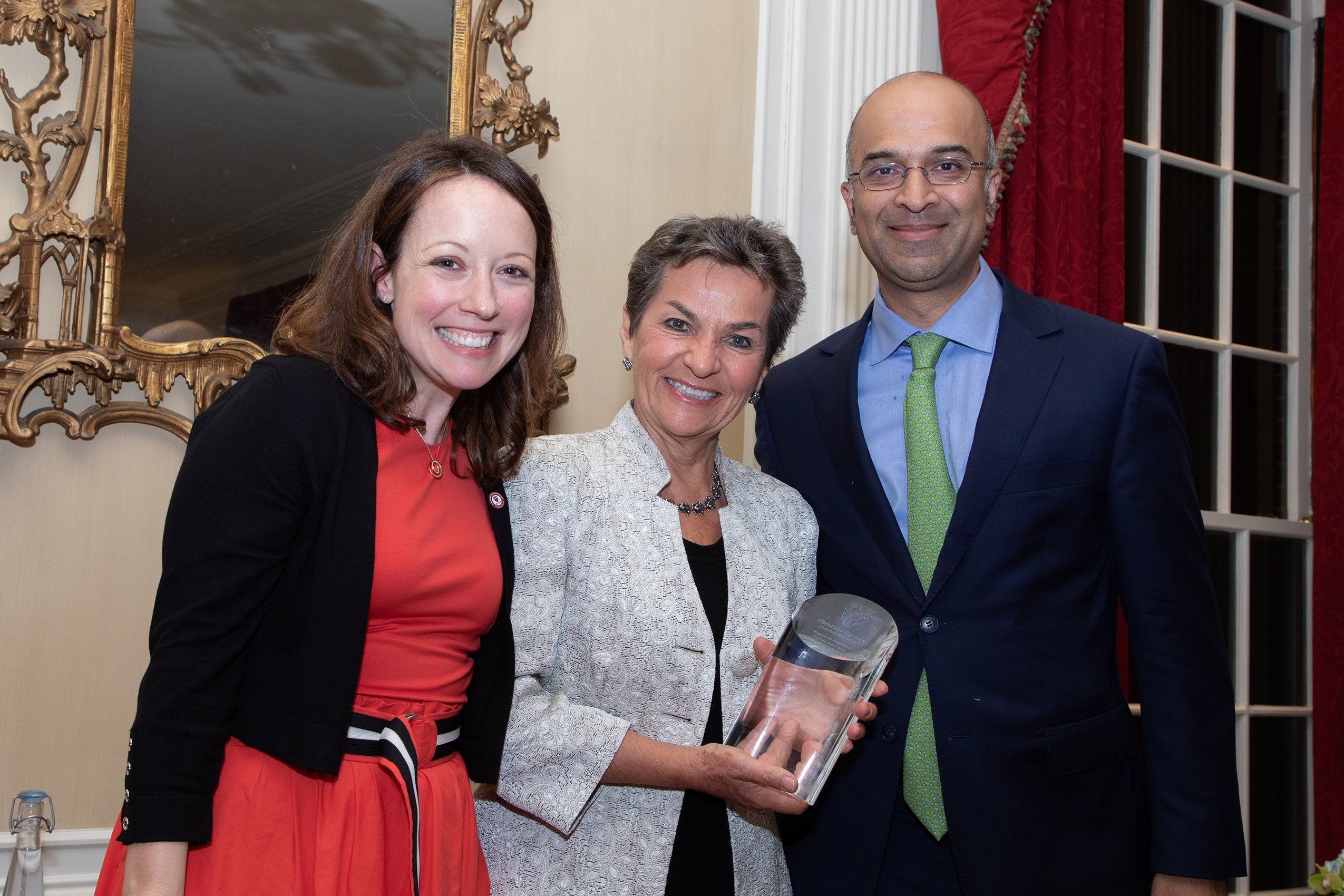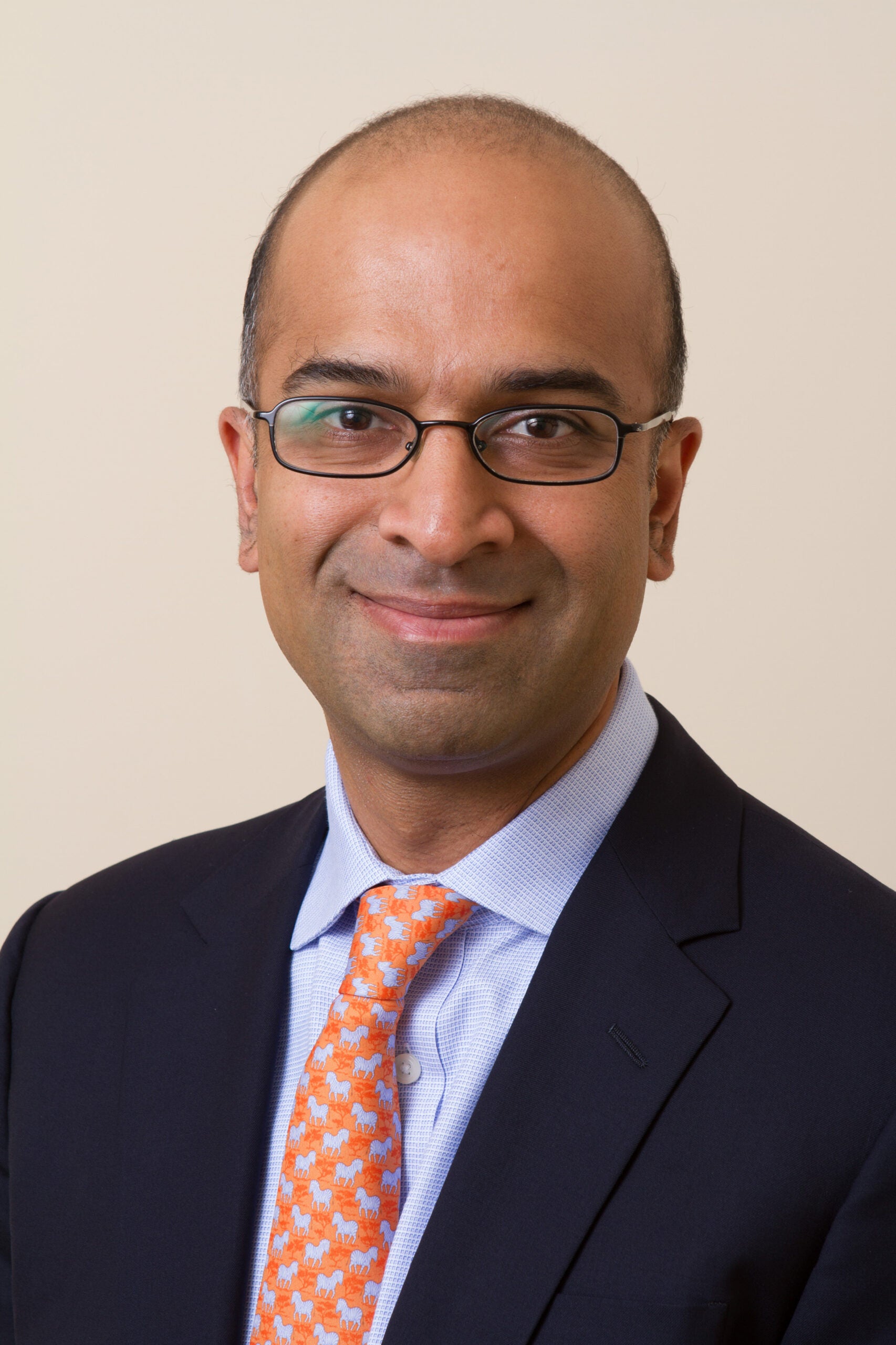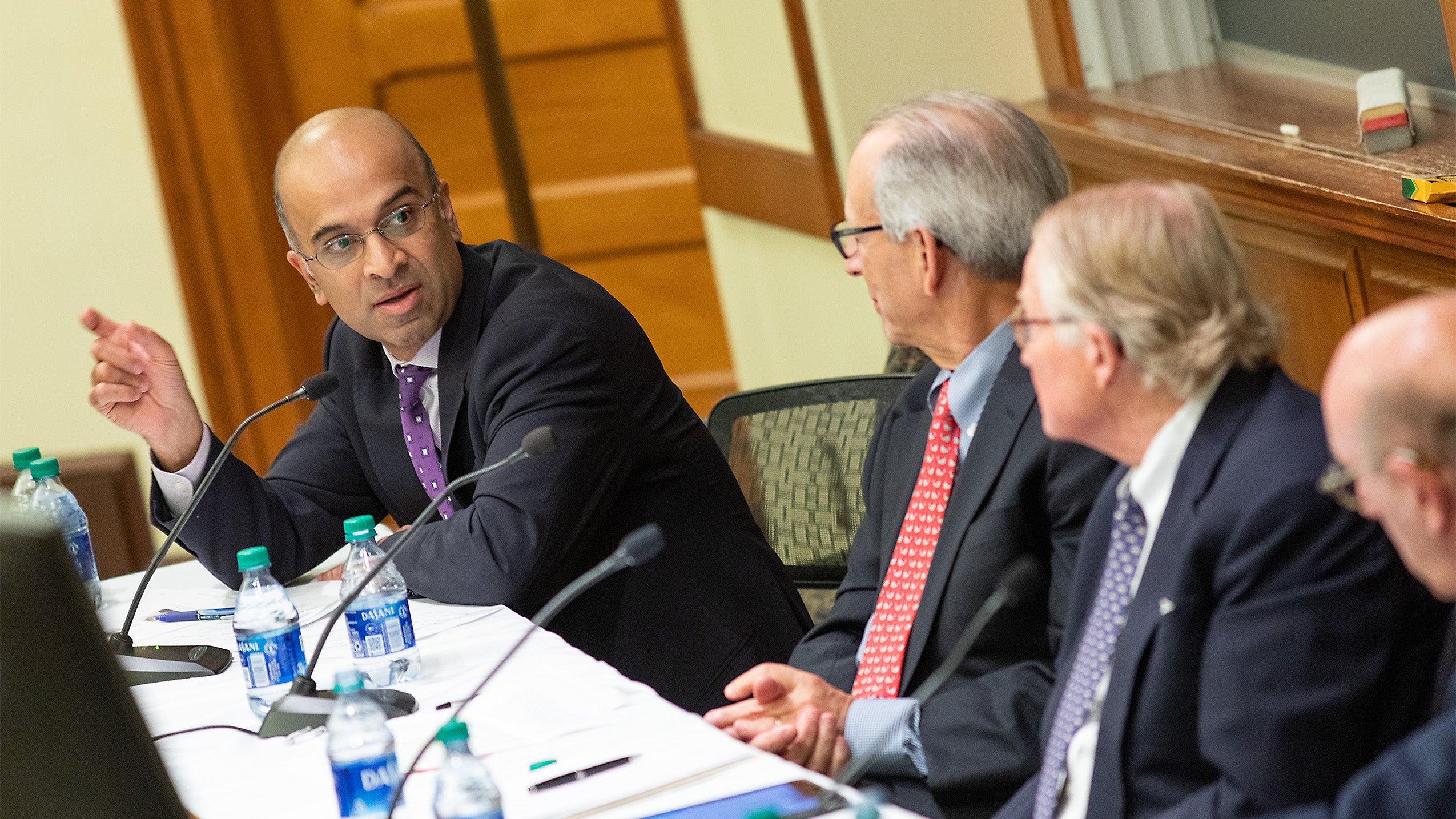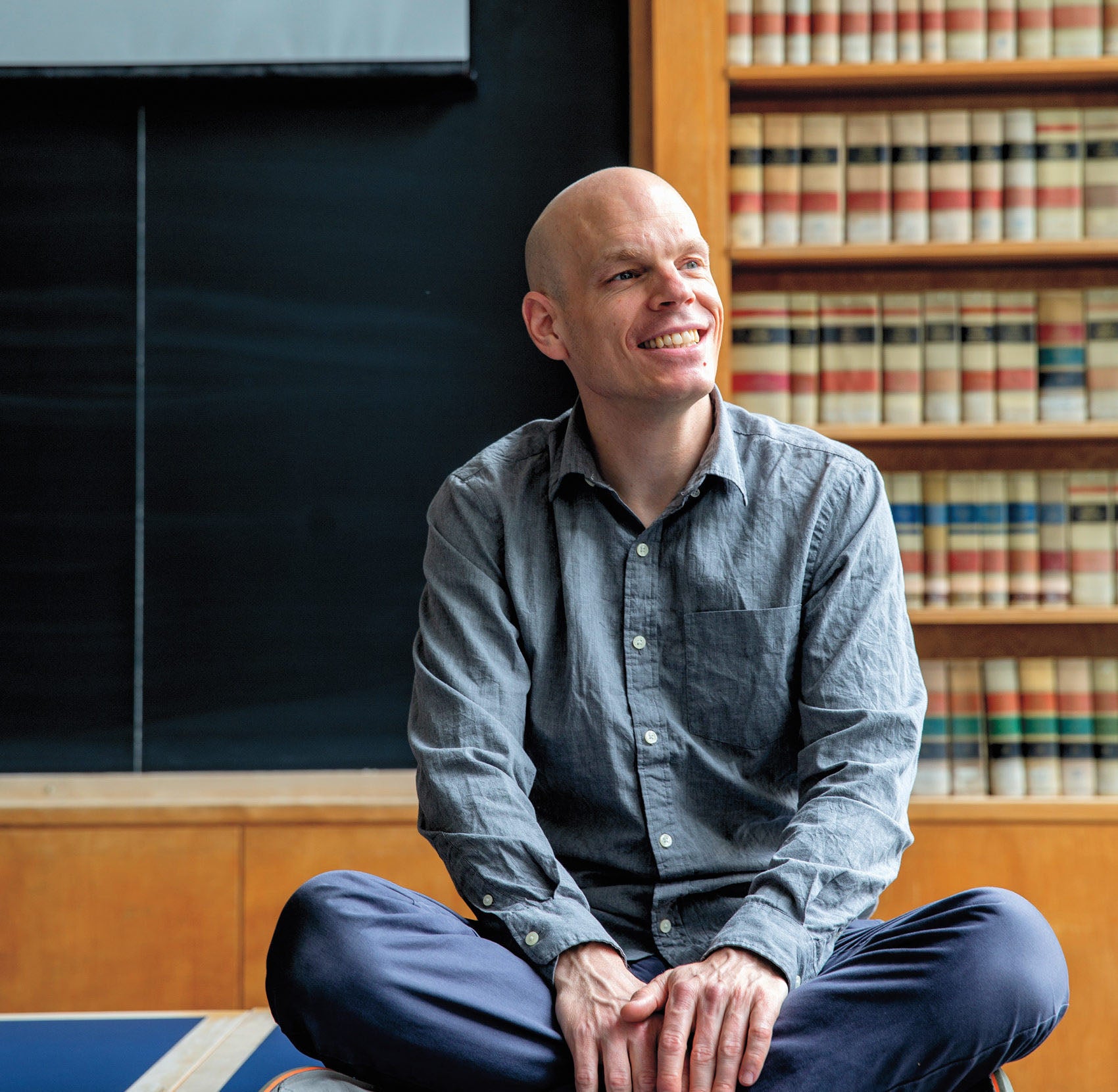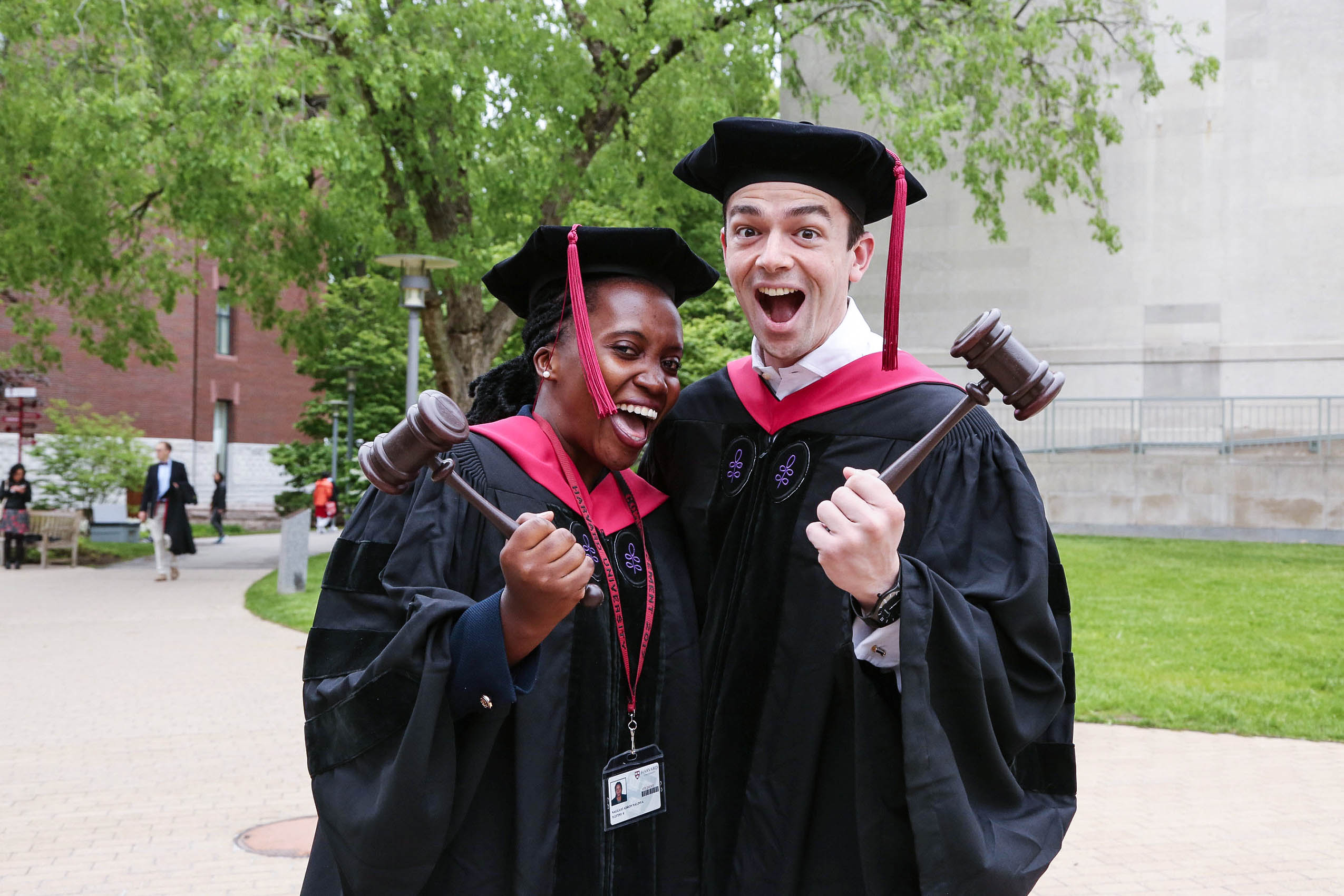People
Guhan Subramanian
-
Elon Musk takes witness stand to defend Tesla buyout tweets
January 23, 2023
Elon Musk took the witness stand Friday to defend a 2018 tweet claiming he had lined up the financing to take Tesla private in a…
-
Elon Musk, Tesla Inc’s (TSLA.O) chief executive, testified on Friday that investors do not always react to his Twitter messages as he expects, defending himself…
-
Legal Roadblocks May Have Made Musk Blink On Twitter Deal
October 6, 2022
haky defenses, negative Delaware Court of Chancery rulings and the risk of costly sanctions appear to have scuttled tech mogul Elon Musk’s attempt to escape…
-
Figueres receives 2022 Great Negotiator award at HLS
April 21, 2022
As the former executive secretary of the United Nations Framework Convention on Climate Change, Christiana Figueres was in charge of the 2015 climate talks in Paris. In a conscious departure from earlier conferences, she declared that any agreement should be unanimous, rather than merely a consensus.
-
Subramanian, Barzuza, other Harvard Law affiliates recognized by Corporate Practice Commentator
May 6, 2021
Articles by Harvard Law Professor Guhan Subramanian, Visiting Professor Michal Barzuza and several HLS alumni were named the Top Corporate and Securities Articles of 2020.
-
Catastrophic harms, complicated questions
November 6, 2019
Everything seems bigger in the late 20th and early 21st century, including the potential for widespread harm. With the advent of sweeping disaster comes the complicated question of how properly to compensate the victims. A panel, “Innovative Models for Resolving Disputes after Mass Disasters and Catastrophic Harms,” held at Harvard Law School on Oct. 22, brought together three experts who have helped resolve disputes after recent historic catastrophes. Moderated by Harvard Law Professor Guhan Subramanian ’98 and sponsored by Harvard Law School’s Program on Negotiation, the panel included attorney Kenneth Feinberg, who famously served as special master of the 9/11 Victim Compensation Fund; Duke University professor Francis McGovern who has litigated cases regarding the BP oil spill and the opioid crisis, and Eric Green ’72 who founded Resolutions LLC, a mediation firm in Boston.
-
Catastrophic harms, complicated questions
October 29, 2019
With the advent of sweeping disaster comes the complicated question of how properly to compensate victims. The Program on Negotiation at HLS convenes an expert panel on dispute resolution in the wake of mass disasters.
-
Talk to People on the Telephone
September 18, 2019
In the past year, I’ve been on a mission to pester as many people in my life as possible. The first victim was my editor, whom I abruptly asked one morning to stop messaging me about story ideas on our office’s chat platform, Slack. Instead, I said, let’s talk the ideas out over the phone. ... Guhan Subramanian, the director of the Harvard Program on Negotiation, which teaches business- and law-school students the finer points of conflict resolution, argues that spoken conversation accomplishes far more in a shorter amount of time. In any discussion, “people are asking questions, probing, asking follow-up questions,” he says. “It’s obviously a lot easier to do when you’re over the phone or in person, compared to by email or text.”
-
Chancery Issues Lightspeed Injunction As Case Tempo Rises
March 13, 2019
The Delaware Chancery Court bumped its judicial warp speed up by another factor this week with a post-trial ruling that paused a complex merger of Medley Capital Corp. and Sierra Income Corp. just 29 days after the start of litigation, as a court already known for prompt action adapts to what experts say is a busier and more competitive corporate law environment. ... Guhan Subramanian, a professor of law and business at Harvard Law School and a professor of business law at Harvard Business School, said the Chancery Court already has established an impressive reputation for the quality of its decisions in fast-moving disputes. "Business strategies, jobs, and careers can be held in limbo while people wait for the Delaware Court of Chancery to rule, so the court realizes that moving quickly has real value,” Subramanian said.
-
Value Innovation
June 26, 2018
During his nearly 10 years on the Harvard Law faculty, Holger Spamann S.J.D. ’09 has always enjoyed teaching corporate finance, but he’s also found it challenging. Some students have worked as traders at hedge funds or in private equity and others have been newly minted English majors who haven’t thought much about business concepts. The solution he has been exploring this year is a corporate finance course divided into four different modules, any of which students can opt out of depending on their knowledge level.
-
The Corporate Practice Commentator recently announced the list of the Ten Best Corporate and Securities Articles selected by an annual poll of corporate and securities law academics. The list includes scholarship by Harvard Law Professor Guhan Subramanian J.D./M.B.A. ’98 and several HLS alums.
-
Xerox Corp (XRX.N) on Friday appealed a New York court ruling to block its deal with Fujifilm Holdings (4901.T), just hours after the company announced that its ousted CEO and directors would remain in place. Xerox said its entire board and management team would stay, as the agreement to oust them reached with dissenting shareholders Darwin Deason and Carl Icahn expired late Thursday. “With the caveat that I have not been privy to these negotiations, I find the rejection of the settlement by the Xerox board to be extraordinary and highly unusual,” said Guhan Subramanian, a professor at Harvard’s law and business schools who served as an expert witness for Xerox in the litigation.
-
We will never know if consolidated shareholder litigation to block Fujifilm’s $6.1 billion acquisition of Xerox Corp would have turned out differently had it taken place in Delaware Chancery Court instead of New York State Supreme Court. But a dramatic decision in the Xerox case has spurred lawyers and academics to ask whether Delaware has become too deferential to corporate boards... The state justices essentially said that when independent boards exercise their business judgment to approve strategic mergers – and give shareholders a right to vote on the deals – Chancery Court should not stand in the way, particularly if there’s no competing bid for the company. Since then, said Harvard law school professor Guhan Subramanian, the trajectory in Delaware Chancery Court has been away from scrutiny of deal processes. Subramanian, who was an expert witness for shareholders in the Xerox case, said he was impressed that, in contrast to Delaware courts in recent years, Justice Ostrager was willing “to engage in a meaningful way” with details of the deal.
-
Professor Guhan Subramanian ’98 will be the new chair of the Program on Negotiation (PON) at Harvard Law School. Subramanian holds appointments at both Harvard Law School and Harvard Business School. As chair of PON, he will succeed Professor Robert H. Mnookin `68.
-
A quick way to understand the drastic shift in prospects for shareholders who bring appraisal actions challenging the value of their stake in acquired companies is to read an exchange of briefs this week in a hedge fund appraisal action against Aruba Networks...Wachtell is convinced the appraisal reboot is good for shareholders. Harvard law professor Guhan Subramanian isn’t so sure. In an essay entitled "Appraisal after Dell," which is cited in Grant’s motion for rehearing in the Aruba case, Subramanian posits that the Delaware Supreme Court has made it almost impossible for shareholders to strike back at inadequate or conflicted deal processes, calling the new risk for dissenting shareholders “a step in the wrong direction.”
-
Canada, Mexico Are Skeptical of Trump’s Nafta Remarks
August 28, 2017
Government officials from Mexico and Canada reacted with skepticism Wednesday to remarks by President Donald Trump suggesting he didn’t believe a deal to renegotiate the North American Free Trade Agreement was possible...Threatening to pull out of Nafta is “clearly a hardball tactic” meant to gain leverage to the U.S. in the talks, and is typical of the president’s negotiating style, said Guhan Subramanian, a professor at Harvard University’s business and law schools and an expert in the negotiation of complex deals. “By describing the way you negotiate you can give visibility to the other side, but the difference here is that President Trump has repeatedly said that he really doesn’t like Nafta,” Mr. Subramanian said.
-
Harvard Law School Commencement 2017
May 25, 2017
On Thursday, May 25, the Harvard Law School Class of 2017 braved the rain to pick up their diplomas and officially become HLS graduates. Here's a look at their day of celebration with family, friends and a steady supply of rain ponchos.
-
...And he said he added some new furniture: Chairs across from the Resolute desk -- the seat of power for presidents including John F. Kennedy and Ronald Reagan -- where he asks his visitors to sit. "I changed the -- the way it works," Trump said, motioning toward chairs right in front of the famous desk. "I'll have people sitting here. Used to be they never had chairs that anybody can remember in front of the desk. But I've always done it this way where I'm at the desk and I have people here."...Meanwhile, negotiations experts say that sitting across a table or desk from an opponent doesn't usually send a signal of cooperation. "It's fair to say that if you deliberately have people sitting across the table from you, you’re conveying less of a collaborative approach and more of a hierarchical or adversarial approach," says Guhan Subramanian, a professor at Harvard Law School and Harvard Business School.

